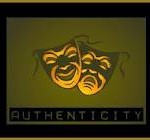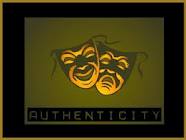It is so important in your relationships to be Authentic!
As I have stated previously there are 10 things which I believe are really important factors to having a healthy relationship. A relationship which will stand the test of time, of stresses and of the challenges life brings. These are the things I call the relationship fundamentals and I will be going over each of them here on my blog.
Fundamental #4 is Authenticity
“For a marriage or relationship to flourish, there must be intimacy. It takes an enormous amount of courage to say to your spouse, “This is me. I’m not proud of it – in fact, I’m a little embarrassed by it — but this is who I am.” Bill Hybel
Are you real with yourself? Your partner? Are you an authentic person?

A MISSING LINK, which can cause many relationship issues, is low self esteem which most often arises from a lack of authenticity. The lies most devastating to our self esteem, to our lack of acceptance of self or our lack of self love are not so much the lies we tell, although it is obvious that those hurt us and others, as the lies that we live every day. Self esteem comes out of being real and loving ourselves because in spite of what we consider to be our faults. In relationship if we choose to fake the reality of our person, we are choosing not to be real. When we do this we are misleading the consciousness of others as well as fooling ourselves, we do so because we are denying our authentic being and have convinced ourselves that who we really are is not acceptable or good enough, we value creating a false front for someone else above our own knowledge of the truth. We deny our divinity, our uniqueness and see ourselves as separate/isolated. The cost is that we go through life with the tormented sense of being an impostor. This means that along with denying our self we also have the anxiety of wondering when we will be found out, when will the other shoe drop. What we don’t understand is that first we reject our self, that is implicit in low self esteem, in faking the truth of who you are, and then you go around feeling not good enough or looking for possible signs of rejection from others, which you will be typically quick to find even if they are not there. You imagine that the problem is between you and other people, you do not understand that the worst of what you fear from others, you have already done to yourself. Loving ourselves demands authenticity, we must have congruence which means that the self within and the self we present to the world are in accord. For when we lack authenticity and fake the truth of who we are it creates a wound in our spirit, we sense a betrayal and we are correct for we have betrayed ourselves. So we are living a lie when; we pretend a love we do not feel, when we present our self as more than we are, when we play small, when we say we are angry and the truth is we are afraid, when we pretend to be helpless and the truth is we are being manipulative, when we deny and conceal our excitement and joy, when we pretend a blindness that denies our awareness, when we pretend a knowledge we do not possess, when we laugh when we really need to cry, when we spend more time than necessary with people we dislike, don’t respect or who make us feel bad, when we pretend to have values that we don’t believe in, when we are loving and kind to everyone but not to the people we love or our self, when we fake things to win acceptance, When we allow our silence to imply agreement with beliefs and opinions we do not share.
In being honest or authentic here are some basic questions to consider.
Using a scale of 1-10 with 10 representing optimal authenticity and 1 representing the lowest level of authenticity, rate yourself on each of these questions. Your willingness to be authentic may be challenged in how you rate yourself.
- Am I real with myself?
- Am I real with others?
- Am I generally honest with myself about what I am feeling.
- Do I consciously strive to be truthful and accurate in my communications?
- Do I talk comfortably, openly and straightforwardly about that, which I love, admire and enjoy?
- If I am hurt, angry, afraid, sad or upset do I recognize what I am feeling and talk about this with honesty and dignity?
- Do I stick up for myself and honour my needs and my interests?
- Do I allow other people to see my excitement, my joy?
- If I know I am wrong, do I acknowledge this simply and candidly?
- Do I respect myself?
- Do I honour my own feelings above what others are telling me?
- Do I listen to my own intuition?
- Do I feel the self I experience internally is the self I present to the world?
- What did you learn about yourself from answering these questions?
Relationship Advice 10 Fundamentals | Relationship & Committment | Good Communication includes Healthy Conflict
Relationships & Authenticity | Closeness and Connection | Being a Team Player in Your Relationship
Relationships Thrive on Respect & Trust | Relationships Need Companionship | Relationships, Intimacy & Sexuality


